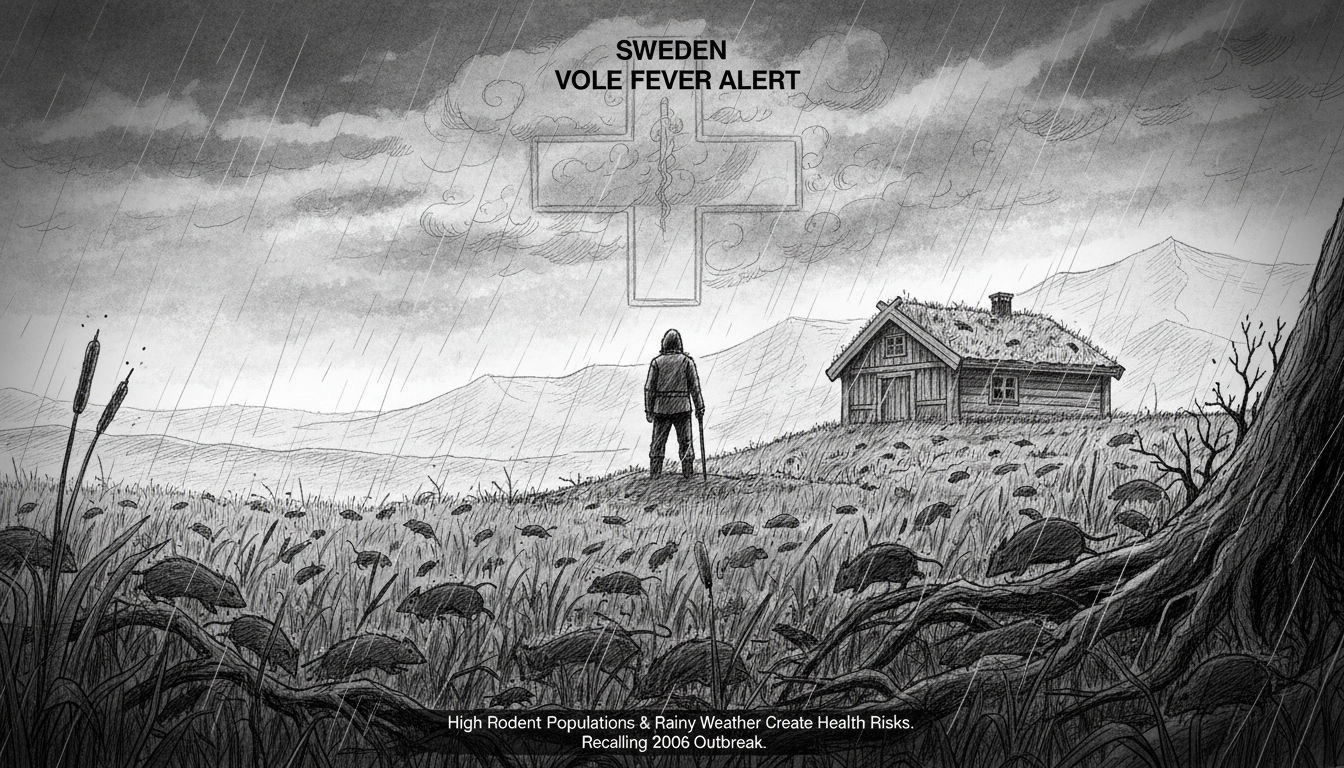Walking through Stockholm's wooded areas like Djurgården or Hagaparken these days, you might notice something unusual. The forest floors seem more active than normal, with small rodents scurrying through the undergrowth. These voles, known as 'sork' in Swedish, are creating what experts call a perfect storm for potential public health concerns.
Frauke Ecke, a landscape ecology researcher, explains the situation clearly. She says the high vole population combined with rainy autumn weather creates ideal conditions for vole fever outbreaks. The last major outbreak occurred during the 2006-2007 winter season. That event sent approximately 2,000 Swedes to hospitals across the country.
Vole fever, or 'sorkfeber,' represents more than just a health concern in Swedish society. It reflects our deep connection to nature and outdoor activities. Swedes spend considerable time in forests for recreation, exercise, and the traditional 'allemansrätten' right to roam. This makes potential disease outbreaks particularly relevant to our lifestyle.
The current situation developed through specific environmental conditions. First, vole populations reached unusually high levels in woodland areas. Then, persistent rainy weather during the autumn months created what researchers describe as the perfect combination for disease transmission.
For international residents and visitors, understanding vole fever risks forms part of adapting to Swedish culture. The disease typically spreads through contact with infected rodents or their droppings. This matters for people enjoying Stockholm's many parks or participating in outdoor activities across Sweden.
Local authorities monitor the situation closely but cannot predict the outbreak's severity yet. The clear warning signals have prompted experts to issue public advisories. They want people to enjoy Sweden's beautiful natural spaces while taking reasonable precautions.
This situation highlights how environmental factors and public health intersect in Swedish society. Our love for nature comes with certain responsibilities and awareness. The vole population surge reminds us that we share these spaces with other creatures, some of which can affect human health.
Stockholm residents and visitors should continue enjoying the city's green spaces. Just maintain basic hygiene practices after outdoor activities. Wash hands thoroughly and avoid direct contact with wild rodents. These simple steps help everyone stay safe while appreciating Sweden's unique outdoor culture.

